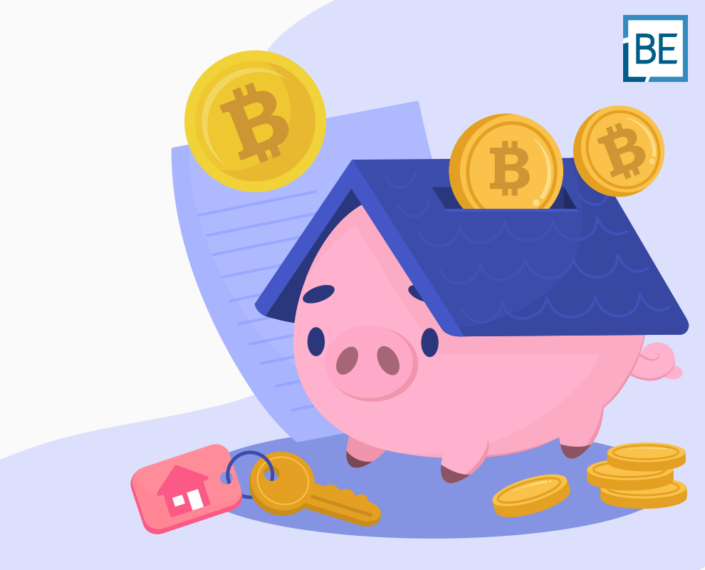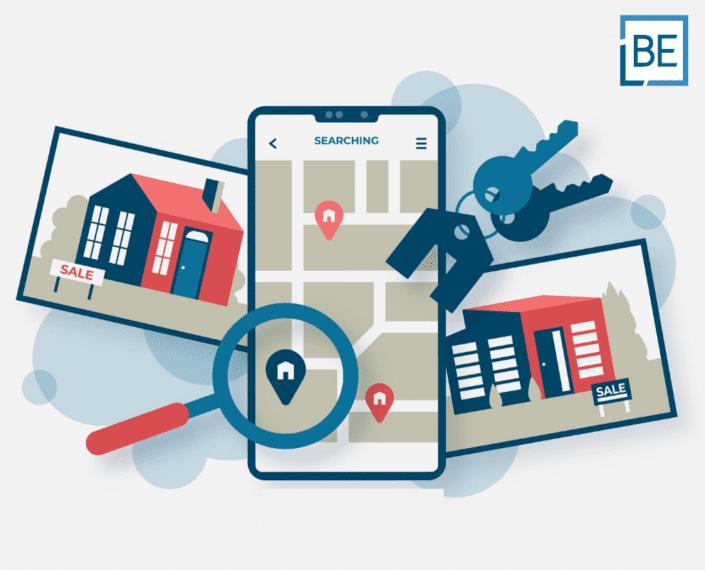Belaws Home ›› Thailand ›› Blog ›› Everything you need to know about purchasing a condo in Thailand
News
Buy a condo in Thailand
Everything you need to know about purchasing a condo in Thailand
14/09/2022
As a popular destination for expats and investors alike, Thailand is a great place to invest in real estate. Additionally, the recent introduction of the new Long Term Residency (LTR) visa has included investing in Thai property as one of the possible qualifications for the visa.
The purchase of a condo unit is by far the easiest way for a foreigner to 100% own a piece of real estate in Thailand. However, it is important to consider what the process is for purchasing a condo in Thailand.
In this article, we will take a look at some of the key areas of consideration when purchasing a condo in Thailand.
Key points
- Foreigners can 100% own condo units in Thailand.
- Up to 49% of the total area of a condominium can be owned by foreigners.
- The condo MUST be bought with foreign currency that MUST be transferred into Thailand as foreign currency and exchanged into Thai Baht by a local bank in Thailand.
Who can buy a condo in Thailand?
As mentioned above, it is possible for foreigners to purchase and 100% own a condo in Thailand. However, it is important to note that there is a limit on foreign ownership in Condo developments.
Thai law states that foreigners may only own 49% of a single condo development. Essentially, this means that foreign ownership in the development cannot exceed 49% of the total area of all condo units.
If you are interested in buying a condo, it is best to check with the development’s jurisdiction office and make sure the building has not reached the foreign ownership quota.
There are however, no restrictions on the number of condominium units that a foreigner can buy (as long as the foreign ownership quota hasn’t been exceeded).
Can I buy a condo with a Thai spouse?
When you purchase a condominium unit in Thailand as a foreigner married to a Thai national, the unit will fall into the Foreign Quota in accordance with the Thailand Condominium Act.
However, if the condo is purchased in accordance with the procedure for the acquisition of land by a Thai national married to a foreigner, then the purchase of the condo will be considered as Thai owned and the purchase will not count towards to foreign ownership quota.
Please note, that should this be the case, the condo will be considered a personal (non-marital) asset of the Thai spouse and would not be a jointly owned marital asset of husband and wife.
How do I pay for the purchase of a condo?
Any purchase of a condo in Thailand must be made using a foreign currency, it cannot be made using Thai Baht (with the exception of foreigners with Permanent Resident status). The money to be used for the payment MUST be transferred into Thailand as foreign currency and exchanged into Thai Baht by a local bank in Thailand. Any foreign currency can be used to purchase a condominium unit.
Please also note that Thai law requires that a Foreign Exchange Transaction Form be issued for any large foreign currency transactions.
This is important because foreigners must be able to present proof to the Department of Land stating that the funds have been remitted into Thailand from overseas and in a foreign currency. Without presenting proof to the Department of Land, it will not be possible to register the transfer of ownership of the condo to the foreign buyer.
When should I make the payment?
The payment should be made prior to going to the Land Office to register the change in ownership (or at the same time by exchanging a bank cheque with the seller).
Can I obtain financing for my condo purchase in Thailand?
Unfortunately, foreigners are very unlikely to be able to receive a loan from a Thai Bank to purchase a property in Thailand. In order to get around this issue, there are a few banks (international banks with a presence in Thailand) who can offer loans to customers in Thailand via their foreign branches. For example, UOB Singapore can offer mortgages to customers in Thailand on the condition that UOB Thailand secures the loan.
Other banks who offer this kind of service include HSBC and ICBC. Please note that while ICBC is open to offering financing to foreigners, they will usually only lend to Chinese customers and customers from a select few nations such as Singapore and Malaysia.
What is the process for purchasing a condo in Thailand?
Step 1: Initial due diligence
Step 2. Financing options
Step 3: Reservation Agreement
Step 4: Sale Purchase Agreement
Step 5: Remittance of foreign funds
Step 6: Payment & Transfer of ownership at the Land Office
Step 7: Obtain a Blue Book
Step 6: Preparation of a will
What is a ‘Reservation Agreement’?
A ‘Reservation Agreement’ (RA) is an agreement made between the buyer and seller in order to secure the booking of the unit. The RA also acts to establish a price through the payment of a deposit.
In Thailand, reservation deposits are usually non-refundable or only refundable under certain conditions (for instance, if banks refuse to pre-approve a loan). It is also standard practice for the reservation deposit to be held by the seller as opposed to being held in an escrow account.
What is a ‘Sale and Purchase Agreement’?
The ‘Sale and Purchase Agreement’ (SPA) is a legally binding contract between two parties (the buyer and seller) which sets out and obligates the transaction between the parties.
A sale and purchase agreement should contain the following details:
- A clear and complete breakdown of the property being sold. This includes things such as: the title deed, house registration etc.
- If the property in question is being sold as either furnished or partially furnished, a detailed
breakdown of all the furnishings should also be included. Please note that items such as air
conditioners and kitchen appliances should also be included in the list (including the brand and model numbers of the items). - A clear and complete breakdown of the total purchase price, closing costs, and taxes, and the terms of payment must also be included. This will include all the details of the payment amount, payment schedule, methods of delivering payment and recording the receipt of payment. Details relating to late payments etc must also be included.
What fees do I have to pay when buying a condo in Thailand?
Typically, the buyer and the seller will both pay the transfer fee and split the cost 50/50. The remaining types of taxes are dealt with by the Seller. However, both parties can negotiate between themselves and decide how much of the payable tax will be paid by each of them.
| Type of Tax | Rate of Tax | Who pays? |
| Transfer fee | 2% | Buyer or shared |
| Specific Business Tax (only payable if the property is sold within its first 5 years of ownership) | 3.3% | Seller |
| Stamp Duty | 0.5% | Seller |
| Withholding Tax | 1% or progressive rate | Seller |
How can Belaws help?
For more information about how our experts can help you purchase your condo in Thailand, why not talk to one of our experts now?
Please note that this article is for information purposes only and does not constitute legal advice.
Our consultations last for a period of up to 1 hour and are conducted by expert Lawyers who are fluent in English, French and Thai.
Consultations can be hosted via WhatsApp or Video Conferencing software for your convenience. A consultation with one of our legal experts is undoubtedly the best way to get all the information you need and answer any questions you may have about your new business or project.
USD 150
Up to 1 hour
Online payment (Paypal or Credit card)
Legal consultation can be conducted in English, French or Thai
Legal consultations are handled by experienced lawyers from the relevant fields of practice
Frequently asked questions
Can a foreigner own a condo in Thailand?
Foreigners can fully own condos in Thailand (subject to the condo developments foreign ownership quota).
Can a foreigner own a land in Thailand?
For the most part foreigners cannot own land in Thailand (there are certain exceptions which are outside the scope of this article).
Is there any fees when purchasing a condo in Thailand?
Purchasing property in Thailand is subject to the following fees.
Transfer Fee
The Thailand Land Department charges 2% of the appraised value of the property.
Business Tax
Business Tax is assessed at 3.3% of the appraised value. However, it’s only payable if the property is sold within the first five years of ownership. If not, stamp duty will be imposed instead.
Stamp Duty
A Stamp Duty of 0.5% of the total registered value of the property will be imposed. When specific business tax is applicable, stamp duty is not required.
Withholding Tax
Whether Withholding Tax is applicable depends on whether the seller is a company or an individual.
Withholding Tax for a company is fixed at 1% of the appraised value or 1% of the sales price (whichever is higher).
Withholding Tax for an individual is calculated at a progressive rate depending on the appraised value of the property.
What type of property can foreigners own in Thailand?
Thailand has no restrictions relating to nationality when buying/selling a condo, therefore a
foreigners can buy and own a condo unit.
Process for purchasing a condo in Thailand?
- Initial due diligence
- Financing options
- Reservation Agreement
- Sale Purchase Agreement
- Remittance of foreign funds
- Payment & Transfer of ownership at the Land Office
- Obtain a Blue Book
- Preparation of a will
Related articles
Subscribe today
Subscribe today
To our newsletter for all the latest legal news
in South East Asia, Belaws updates and
special promotions on our services.
To our newsletter today for all the latest legal news in South East Asia,
Belaws updates and special promotions on our services.







